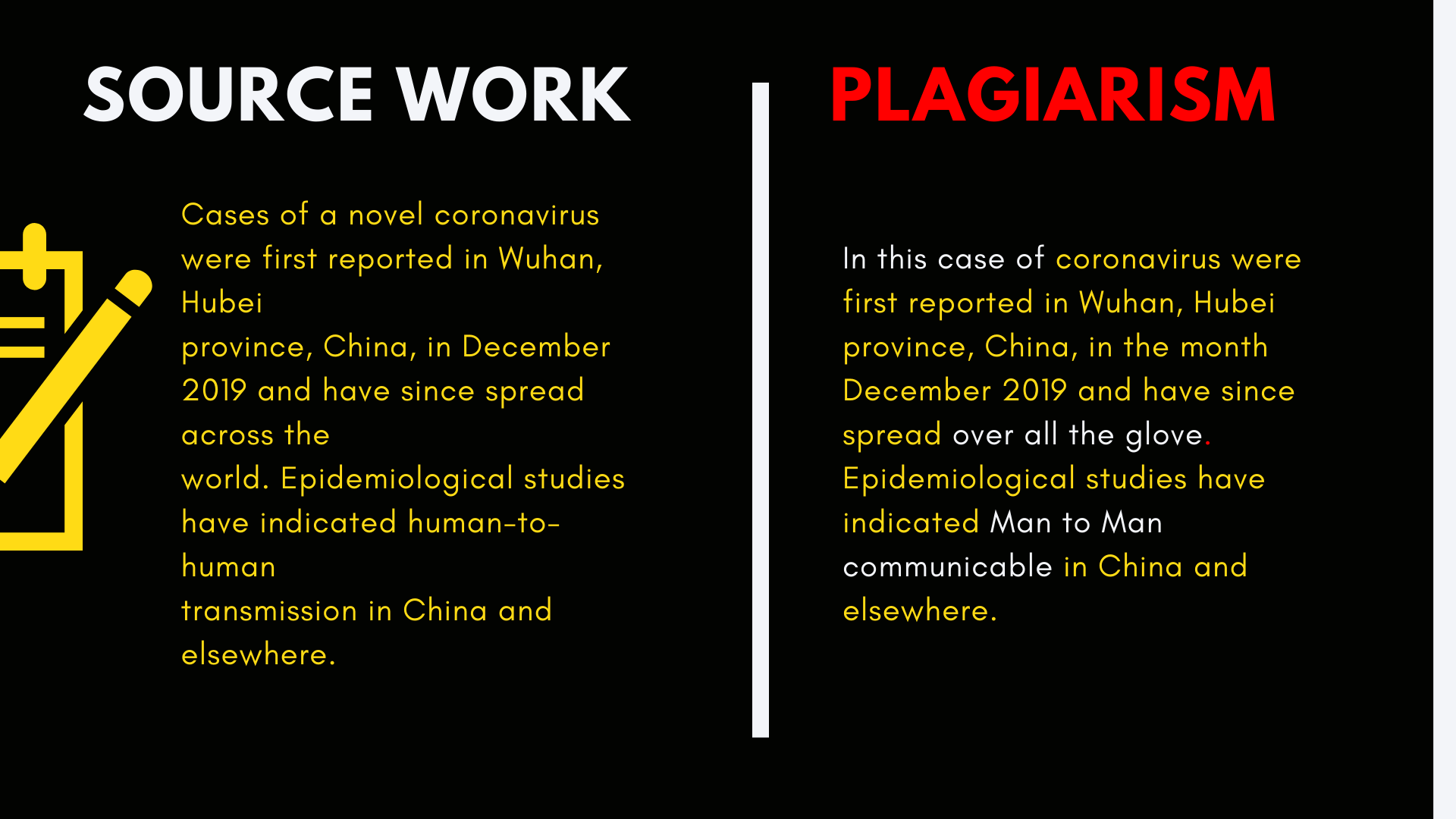Plagiarism Is A Form Of Copyright Infringement
Plagiarism Is A Form Of Copyright Infringement - Although they’re often used interchangeably, plagiarism and copyright infringement actually represent two different facets of intellectual property. How can i avoid it? Plagiarism is a form of copyright infringement. Web is plagiarism a form of copyright violation? Web how is copyright related to plagiarism? Plagiarism is best defined as the unacknowledged use of another person’s work.
10 Types of Plagiarism Every Academic Writer Should Know Updated
However, the act of plagiarism can infringe the intellectual property rights of others and can lead to legal action for ‘copyright infringement’ ‘or ‘trademark infringement’, which in turn can bring about legal charges, significant costs and reputational damage. Web plagiarism ≠ copyright infringement. Plagiarism is the act of presenting someone else’s work, ideas, or words as one’s own without giving proper credit or acknowledgement. In practice, this can mean a few different things. Web copyright infringement includes the unauthorized or unlicensed copying of a work subject to copyright.
It’s Important To Always Provide Accurate And Complete Citations For Any Information Or Ideas Borrowed From Other Sources.
Web plagiarism, in turn, is a type of copyright infringement, in which a person presents the original ideas of another person as one’s own or fails to reference the author. It is an ethical issue involving a claim of credit for work that the claimant did not create. Copyright infringement is using someone else’s work without their consent. However, there is a difference between these two terms.
Web Plagiarism Is Simply Not Providing Proper Attribution Of Someone Else’s Work.
Web plagiarism is not a criminal offence. Web plagiarism is a form of academic misconduct that occurs when you represent the work and/or ideas of another person as your own, original work. One can plagiarize someone else’s work regardless of the copyright status of that work. With the absolute explosion of digital content (both production and consumption), plagiarism and copyright infringement have become increasingly intertwined and important.
Web The Biggest Difference Is That Copyright Infringement Is Illegal, While Plagiarism Is Not.
Web the difference matters—not least because plagiarism, while dishonest and reprehensible, is not illegal. How can i avoid it? In academic writing, plagiarizing involves using words, ideas, or information from a source without citing it correctly. Plagiarism is using other people's original work without crediting them as the source.
Although They’re Often Used Interchangeably, Plagiarism And Copyright Infringement Actually Represent Two Different Facets Of Intellectual Property.
Plagiarism means using someone else’s work without giving them proper credit. This blog post discusses additional differences between the two and provides examples of each type of improper use. Plagiarism is a form of academic dishonesty that can arise from falsely claiming the ideas and scholarship of another person as your own. Web copyright infringement is the unauthorized use of another person’s original creative works, which includes literary, artistic, musical, or other types of content protected by copyright law.
Web plagiarism is the act of presenting someone else’s ideas, words, or work as your own without giving them proper credit. On the other hand, plagiarism is primarily an ethics breach related to academic and creative integrity. Web how is copyright related to plagiarism? However, there is a difference between these two terms. Plagiarism means using someone else’s work without giving them proper credit.




